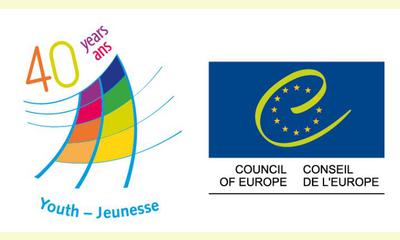|
|
Call for partners: International Conference, The role of young people in peacebuilding and social change
un article par Ana Carla Rodrigues Afonso
CEIPES [ International Centre for the Promotion of Education and Development] is glad to invite you to take part in the International Conference ‘The role of young people in peacebuilding and social change: good practices and future perspectives’ that will be held in Palermo between 20th and 25th of November 2012. We are looking for young and active participants from Council of Europe member countries (to know the countries please check the website of the Council of Europe who have already gained at least a basic experience on topic of peacebuilding and human rights education.

click on photo to enlarge
Our conference is a response of young’s people increasing interest and motivation in changing the current social and human rights situation in the world. Willingness to change should be always supported by the relevant tools, with which youth may try to fight contemporary problems of societies. They are very often aware of what is happening around them and would like to actively counteract negative actions, however feel helpless and unconfined about which steps may be taken to change it.
During five days we would like to provide participants knowledge by organizing workshops and activities based on non-formal education. With this we try to meet participants needs and expectations, related to the topic of peacebuilding and social change and additionally develop their skills.
Deadline is on the 22nd of October!
If you are interested in taking part in our International Conference, please check all of the necessary information in the Call for participants.
The conference has the financial support of the European Youth Foundation of the Council of Europe.
|








|
DISCUSSION
Question(s) liée(s) à cet article:
Is there a renewed movement of solidarity by the new generation?,
* * * * *
Commentaire le plus récent:
from Javier Collado Ruano, Director of Edition at Global Education Magazine, on the occasion of the International Day of Solidarity.
Solidarity is a trans-dimensional phenomenon that goes beyond the ontological essence of human nature. In fact, when we analyze the connections between the microcosm and the macrocosm, we perceive that human beings are not involved in chaos and arbitrariness, but belongs to the large network of interdependencies, complementarities and reciprocities that constitute life. The emergence of life on Earth, around 3,8 billion years ago, was a complex process of exceptional natural phenomena, inherent in all living systems. A process which is expressed through unlimited creativity: mutation, gene exchange, and symbiosis. From a cosmo-biological perspective, we can understand a new conceptual dimension of life, where all living beings share same basis of genetic code: the twenty amino-acids and four phosphatic bases. In fact, the diversity of living beings is caused by the combination of this cosmo-bio-genetic basis.
This trans-dimensional perspective has a deep ecological and spiritual sense for our worldview because the human evolutionary adventure is the latest stage of life on Earth. The modern human being is a vertebrate animal, mammal, belonging to the primates, which emerged 200,000 years ago. In recent centuries he has imposed its anthropocentric, industrial and capitalist vision to the detriment of Pachamama (and Indigenous goddess known as earth mother). We consume around 120% of the natural resources that Earth Mother regenerats annually. Our consumer behavior is immersed in a fatalistic dynamic with a destiny to climate change (deforestation, loss of biodiversity, ozone, etc.), and our own self-destruction as a species.
There is an urgent need to get beyond the cognitive fallacy that the mental structures of social Darwinism and capitalist postulates of the 19th century have historically constituted, because they only understand natural and social systems as warmongers and competitive processes whereby species diverge from each other. . ... continuation.

|
|









